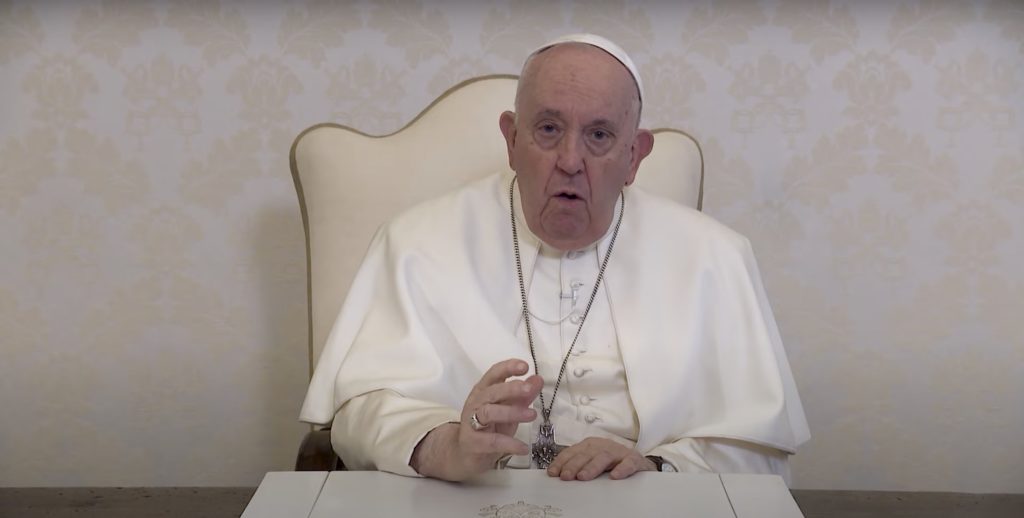ROME — It’s fitting that the phrase “all publicity is good publicity” conventionally is attributed to P. T. Barnum, because, in the 21st century, spasms of public attention almost inevitably degenerate into a media circus rivaling anything Barnum & Bailey ever staged.
Pope Francis presided over just such a circus this week, and that was even before the pontiff departed Thursday evening for a four-day trip to Mongolia, where the tiny Catholic population numbers roughly 1,450 hardy souls.
The PR fracas for the pope began when it emerged that during a video conference with Russian Catholic youth in late August, Francis had praised “great Mother Russia.”
“You are heirs of the great Russia, the great Russia of the saints, of kings, the great Russia of Peter the Great, of Catherine II, that great, enlightened Russian empire, of so much culture, so much humanity,” the pope told the youth gathered for a Catholic festival in St. Petersburg.
That language brought swift protests, including from a spokesperson for the Ukrainian government, which said it smacked of “imperialist propaganda,” and from the head of Ukraine’s Greek Catholic Church, who said the pope’s language had caused “great sorrow and concern.”
Naturally, the furor wasn’t limited just to Ukraine, but also spread to its allies and backers, prominently including several American commentators.
“Can he truly be serious in advising young Russians to hang on to a legacy of death and destruction? The mind boggles,” said American political scientist Alexander J. Motyl, writing in The Hill.
“The pope’s silence in the presence of manifest evil is bad enough,” Motyl opined. “Far worse — far, far worse, almost unforgivably so — is his open endorsement of Russian imperialism.”
As it turns out, the contretemps over Russia was merely a warm-up act in terms of American public opinion this week, since the pope also took a direct shot at a segment of the American Catholic population in a different context.
As is customary, Francis met with a group of his fellow Jesuits when he was in Portugal in early August to preside over World Youth Day. Also as is customary, the transcript of that informal chat was released only this week, and it set off a mini-tempest in light of the pontiff’s response to a question about resistance to his progressive agenda in the United States.
“In the United States, the situation is not easy: There is a very strong reactionary attitude,” he said, asserting that some American Catholics are “backward” in their thinking about Catholic doctrine.
“Those American groups you talk about, so closed, are isolating themselves,” Francis said. “Instead of living by doctrine, by the true doctrine that always develops and bears fruit, they live by ideologies. When you abandon doctrine in life to replace it with an ideology, you have lost, you have lost as in war.”
Predictably, many conservatives in the U.S. chafed. Here’s a typical riposte posted in the comments box on the New York Post.
“This Pope is the most political pope of at least the last 50 years. It’s laughable that he calls out others for putting politics over faith,” this reader said. “His reign is all politics, and he is a globalist who supported lockdowns. He is chipping away at the faith while calling it modernization. I appreciate those true Catholic priests fighting to prevent the secularization of the church.”
While Francis is aware of such reactions, he’s hardly going out of his way to smooth things over. Asked during his flight to Mongolia on Thursday about American Catholics who were upset, the pontiff brusquely suggested they need to “move on.”
Of course, this is hardly the first time Francis has said something destined to elicit blowback from Americans, especially American conservatives. It almost feels as if he goes out of his way at times to deliver such pokes in the eye.
What gives? Two observations suggest themselves.
First, one way to understand the deep ambition of Francis’s papacy on the geopolitical level is as a long-term effort to redefine the nature of the Vatican, away from being seen as a primarily Western cultural institution and towards a truly global and non-aligned center of influence. In most respects, Francis is closer to the diplomatic agenda of the newly expanded BRICS alliance, which now contains 11 nations representing almost half the world’s population, than he is to the U.S. or the E.U.
In that sense, distancing himself from American foreign policy, as Francis has over Ukraine, and even being directly critical of America, or at least some segment of its population, all serves the pope’s interest by making it clear he’s not in Washington’s pocket.
Second, while this may be no more than cold comfort for American conservatives, there’s a sense in which his occasional critiques amount to a back-handed compliment.
It’s difficult to imagine, for instance, the pope publicly complaining about the “reactionary attitude” of some hardline Marxists in China’s State Administration for Religious Affairs, or calling anti-Roman traditionalists in the Russian Orthodox fold “backward.” The reason is because in both cases, such rhetoric might produce backlash against Catholics on the ground — clergy might be detained, churches might be closed, missionaries might find their visas denied, and the Vatican might find its diplomatic relations interrupted.
Francis knows full well that the United States won’t do any of those things. On the contrary, given America’s commitment to religious freedom and the public esteem religious faith enjoys, nobody’s going to pay any real price in the U.S. when the pope speaks, even if what he has to say generates heartburn in some American chests.
In other words, the mere fact of saying critical things out loud about the United States is, de facto, a tribute to America’s basic maturity. Of course, some Americans might be tempted to reply they could do without such indirect praise, but there it is anyway.

